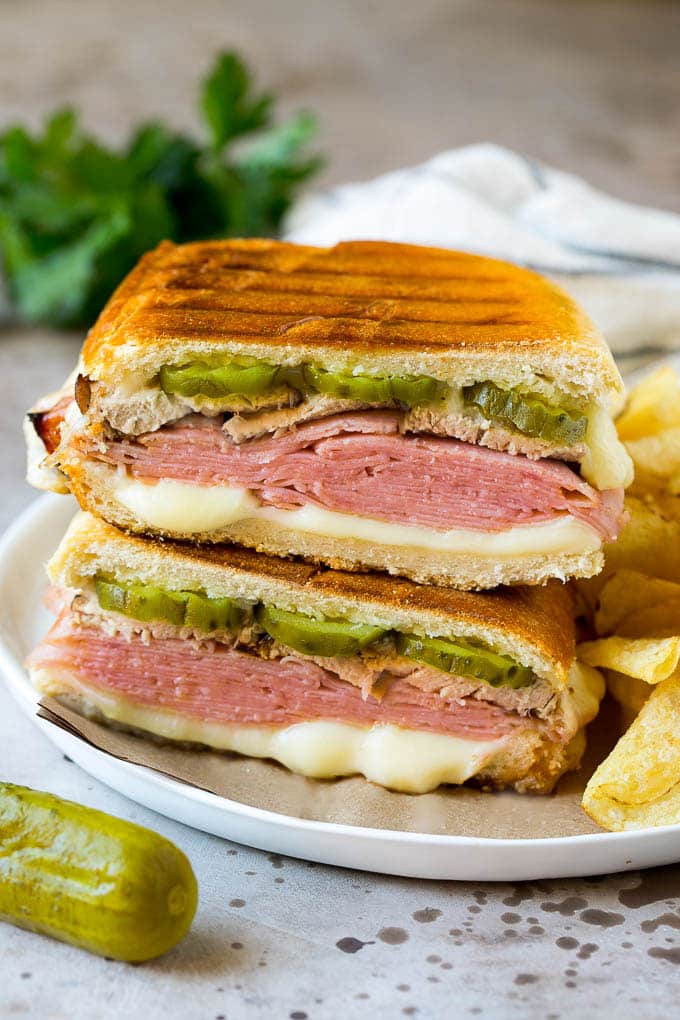


If there is one thing you need to learn before going to Miami, or before delving into an exploration of Cuban
culture,
it is Cuban food. Though the cuisine may seem simple from an outsider's perspective, it's diversity and ability to
trace
back to complex roots makes it exciting.
Cuban food has Spanish, African, and Taino influences, and incorporates a variety of spices. Blends of garlic,
onion,
cumin, coriander, pepper, and oregano permeate the air of homes or streets with mouthwatering smells. Cuban cuisine
presents that perfect balance of spices that one typically wouldn't put together, but that has delicious results.

Forget your love for espressos because cortaditos will soon become your favorite thing. Known fondly by Miamians as "Cuban crack," cortaditos can be found at any kiosk or restaurant in Miami (and are what introduced me to coffee drinking!). Created due to the shortage of coffee in Cuba in 1962, this drink has cemented itself into Cuban-American cuisine and gained popularity with additional help from the Kardashians.

Crispy layers of puff pastry and the perfect ratio of filling, these pastries will fall apart in your hands just as
they
fall apart in your mouth. The exact origin of these treats is just as fun and intriguing as the dish. There are
multiple
theories as to who invented pastelitos, from slaves working in the sugar mills to a Lebanese man who wanted to
recreate
his beloved Baklava. Take your pick as to which origin story you want to support.
The two common fillings are guayaba (guava) or cream cheese which is dusted with some sugar. A cream cheese filling
may
make you think these treats are savory but that is quite the opposite - all pastelitos are perfect for someone with
a
sweet tooth. No matter which kind you pick, these buttery delights incorporate the perfect amount of crunch with
tartness.

Fried battered ham sounds weird at first, but believe me, this is probably one of the best Cuban dishes out there.
The
contrast between the crispy breaded outside and smooth inside from the bechamel sauce is
divine.
Delightful at any time of
the
day (and even better with a cortadito), croquetas are, in my opinion, the most universal Cuban food item.
They can be the perfect snack/accompaniment and are filling enough to be a meal on its own (depending on how many
you
order). At least 3 times a week after school, my mom would take me to the little store by my middle school and get
me
croquetas. Though these weren't my absolute favorite at first, the tradition associated with them gives this dish a
special place in my heart.

The savory sibling of maduros (sweet fried plaintains) and the Latin cousin of French fries, this dish is made from
green plaintains. Fried to crispy perfection and salted, tostones provide that perfect bit of crunch to a meal.
It's crazy to think that a fruit imported from India by the Spanish would become essential to many cultures' diets,
and
that it would appear in many places with a Cuban link (including a high school cafeteria, in my experience!). When
they
served tostones for lunch, I knew two things: first, that it was going to be a good day, and second, that there
would definitely be
a line.

Fresh ham and pork, cheese, mustard, and pickles combine to form the innards of this traditional sandwich. This
combination is taken to the next level when it's put in between two slices of warm, pressed Cuban bread.
What makes Cuban bread different from any other variety is its crisp crust and lightly fluffy textured inside, all
created by the use of lard. If lard is not included in the bread-making process, that is not Cuban bread
When the sandwich is toasted to perfection, you get the warmth and gooeyness of the cheese while still maintaining
the
crisp crunch of the pickles. This sandwich is so good that it made me, a mustard-hater, gain some respect for the
condiment. The recipe uses just the right amount, and the other ingredients mask mustard's sometimes overtly spicy
flavor.

Slow-simmered shredded beef mixed with peppers and olives, ropa vieja is the go to for abuelasor
moms-on-the-go everywhere in
South Florida. Easy to make in large quantities, this dish will be on the menu of any Cuban restaurant. Believe it
or
not, ropa vieja can even be found in Miami International Airport; be sure to leave enough time to savor it's
flavors,
though, or you'll miss your flight.
The juiciness of the meat and the hint of saltiness from the olives creates the perfect blend of flavors, assured to
leave your tastebuds satisfied and itching for more.

When in doubt, order picadillo. Picadillo is ground beef with potatoes (optional), olives, and onion simmered in
tomatoes and typically served with rice. What makes this dish special are the hints of cumin and cinnamon that
create a
savory plate with undertones of sweetness.
The scrumptious food is definitely one thing that makes the "Cuban experience," but the environment of where you
dine
completes the adventure. To gain that full Cuban experience and feel like you've gone to Havana for a night, grab
your
familia and amigos and dive into these dishes.
No other cuisine can compare to the laughter, music, and dancing that accompanies every Cuban meal. Just like Cuba, each of the presented dishes are versatile and come from mixed origins, and will prove unforgettable. Try a new Cuban dish this week!